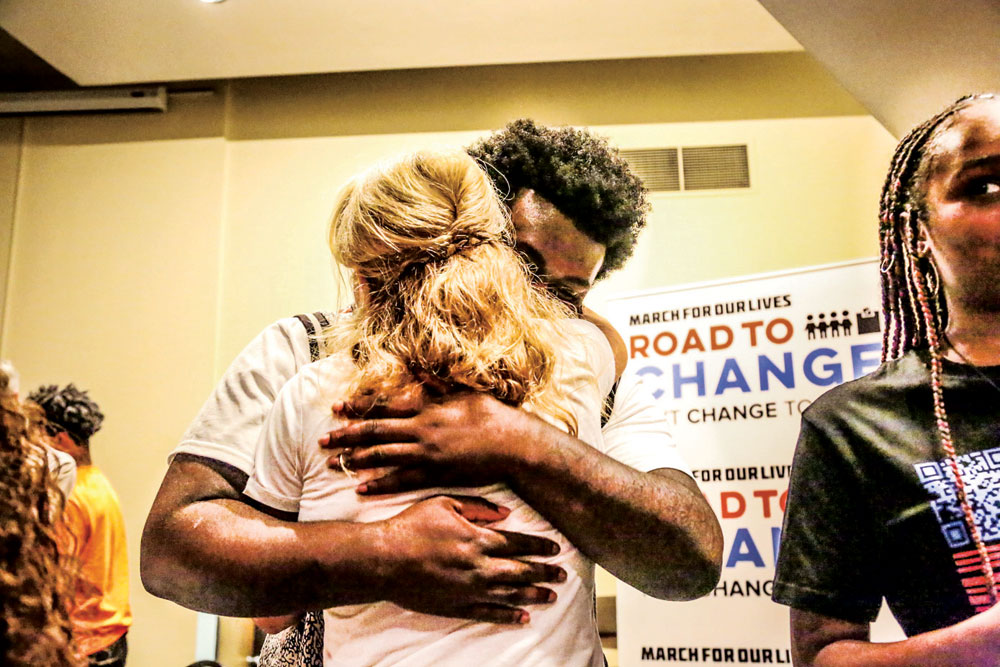
Alex King embraces an audience member after speaking as part of the Road to Change town hall meeting in Denver. King was part of a panel of speakers affected by gun violence. King’s nephew was shot and killed in Chicago.
March for Our Lives stated its plan for the Road to Change Tour was to pass through NRA strongholds and communities affected by gun violence. Therefore, Denver and Aurora, Colorado were going to be part of that list for practical and tragic reasons.
On the practical side, Colorado is one of the few municipalities to get firearm restrictions passed in this decade. Universal background checks and a ban on high-capacity magazines got onto the books in 2013.
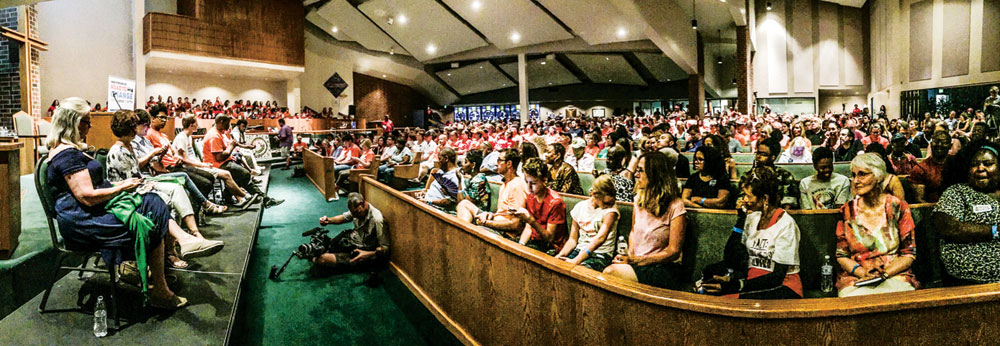
Message from these neighbors: To End Senseless Gun Violence – Vote!
However, a proposed red-flag law (which allows authorities to restrict individuals identified as extreme risks from accessing firearms) was struck down, and powerful groups like the NRA and the Rocky Mountain Gun Owners continue to work against new legislation and roll back the 2013 laws.
And, of course, the shootings in Columbine and Aurora keep Colorado permanently affixed in the discussion of gun control and mass shootings in the United States.
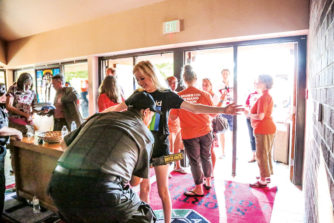
An overflow crowd attended an event at Shorter AME Church to end senseless gun violence. The event was peaceful, but security was tight. Attendees were not allowed to carry anything, including purses or backpacks.
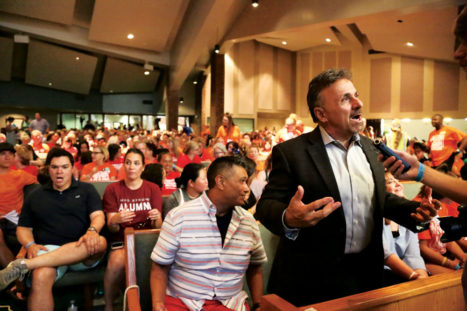
Former Columbine principal Frank DeAngelis speaks on the importance of the tour coming to Denver. Even 20 years later, Columbine is still discussed and valued “ having everyone here together.”
On July 23, Road to Change held a town hall meeting at Shorter Community AME Church in Park Hill.
Speakers discussed the money and power wielded by the NRA in the United States. As an interest group for gun owners, the NRA is often held responsible for limiting gun control regulation in the US. Tom Mauser, whose son was killed at Columbine and is now a major voice for gun control in Colorado, argued people shouldn’t just spend their time, “preaching to the choir and complaining about the NRA.”
“The fact is they are very good at what they do. They intimidate. They organize, they make calls, they do a good job of what they do,” said Mauser of the NRA, “and we are not doing as good a job as we need to be doing.”
Speakers pointed to statistics on the popular support of “common sense” regulations—but the inability to create change. Speaking to a sea of #NeverAgain orange T-shirts in the audience, the goal seemed to be mobilizing them to take the conversation outside of this already committed group.
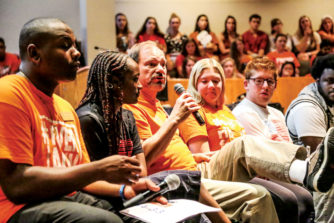
Columbine parent Tom Mauser raises his foot to show the audience the shoes his son wore when he was killed. On his chest he wears a button with a picture of his son.
In the audience was David White, a Littleton educator, who came out of the town hall meeting intent on speaking with his parents to get them on the “right side” of the issue. He said it was heartbreaking to hear from those so close to school tragedies. “We do drills we prepare for it. The thought is always there.”
But school shootings make up only a fraction of gun violence in the United States. Alex King, a Chicago native, said everyday shootings are often forgotten or mislabeled, like the death of his nephew, shot on a porch in Chicago. “If you are African-American and you shoot somebody, its gang violence. If you are Middle Eastern, it’s a terrorist attack and if you’re white, it’s mental health problems” King said.
Speaking locally, Charlie Jones of east Denver said, “In a community of color, we don’t get the marches or the rallies for the day to day violence.”
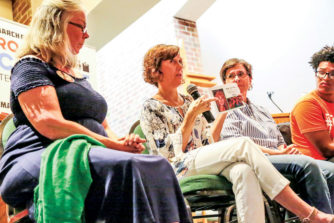
Littleton resident Jane Dougherty, sister of Mary Sherlach, the school psychologist killed at Sandy Hook said she wished at times her sister had not been so brave that day.
When an audience member asked about guns moving from unregulated areas into stricter municipalities, Alex King responded simply, “Vote.”
Time and again, speakers identified voting as one of the most powerful tools for those who support gun control legislation to do something—not just on the issue the audience member asked about, but across the board.
Outside, volunteers at the Road to Change Tour registered people like 16-year-old Lauren Fox to vote. Colorado allows for same day registration, but Fox favored getting on the books at Colorado’s minimum age, “so then when you do turn 18, you’re ready.”
The speakers stressed voting as the way to get new legislators into office and new legislation on the books to support the movement to end gun violence in the United States.



0 Comments